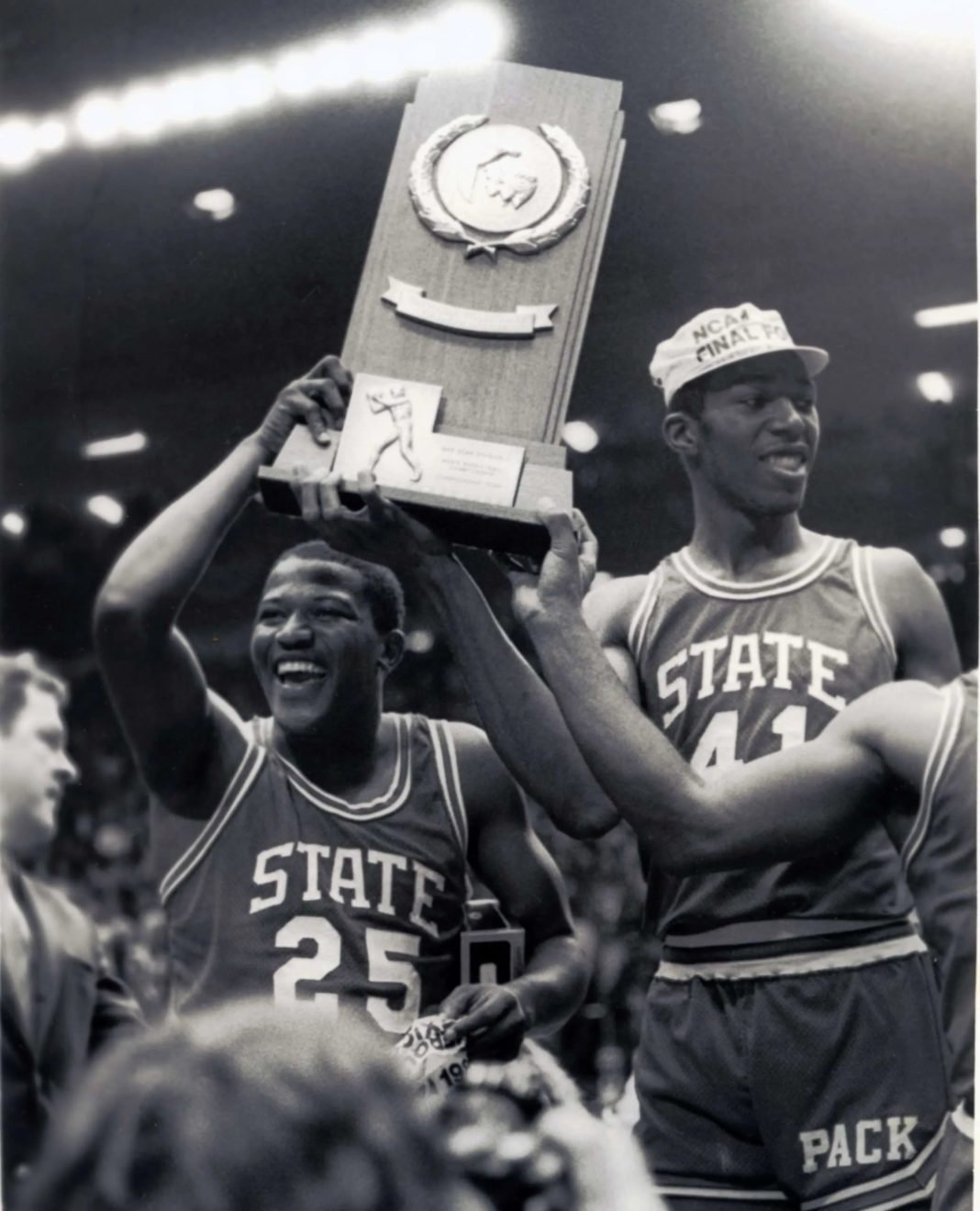Ten players from North Carolina State’s 1983 national championship-winning basketball team, widely known as the “Cardiac Pack,” sued the NCAA and Collegiate Licensing Company in a North Carolina superior court Monday.
The lawsuit alleges that the defendants conspired to unlawfully force the NC State athletes to relinquish their publicity and NIL rights and have since continued to exploit those rights long after the athletes completed their collegiate careers. Despite the players competing over 40 years ago, footage from the 1983 tournament remains on the NCAA’s YouTube channel and NCAA.com. These videos continue to generate advertising revenue not shared with the former players.
The team, led by head coach Jimmy Valvano, became famous for their heroic, come-from-behind wins throughout the NCAA tournament, culminating in a buzzer-beater victory in the national championship game. The NCAA continues to utilize images and clips of the group to promote the March Madness tournament. While players across the NCAA have been able to profit from NIL since July 2021, those who competed before then have not had the same opportunity.
Of the ten players included in the lawsuit, only Thurl Bailey went on to achieve noteworthy success in the NBA. Along with playing 12 seasons in the NBA, he also played overseas in Greece and Italy.
Bailey and the nine other plaintiffs assert six claims for relief under North Carolina law, alleging misappropriation of NIL and publicity rights along with violations of antitrust law. The primary purpose of withholding NIL rights from the players, according to the lawsuit, was to generate profit for the NCAA: “The NCAA’s publicly stated goals in creating the rules are mere pretext; the rules serve only to allow the NCAA to maximize its profit from student-athletes’ uncompensated labor in the only labor market available to them.”
Bailey et al. v. NCAA joins a growing number of legal battles facing the NCAA that challenge the association’s rules and restrictions on compensation. Many of the arguments presented in the complaint resemble those in Ed O’Bannon’s lawsuit against the NCAA, which helped set the stage for the landmark case of NCAA v. Alston. The lawyers for the former NC State players argue that the Supreme Court in Alston unambiguously determined that the NCAA enjoyed “buyer-side monopoly power” and that these restraints harm competition.
According to a recent Sportico article by Michael McCann, the defendants are expected to respond to the complaint by denying any wrongdoing and raising several key defenses. One likely defense detailed in the article suggests that the plaintiffs’ claims may be barred by the statute of limitations, given that the tournament occurred 41 years ago, and claims of this nature typically have a limited timeframe for filing. However, the plaintiffs’ lawyers are likely to counter this argument by demonstrating that footage of the Cardiac Pack is still available online, which indicates ongoing harm to the plaintiffs.
The defendants may also argue that the First Amendment protects the right to use game footage. However, this protection comes with several exceptions and limitations. Moreover, the plaintiffs will likely point to the fact that the NCAA and colleges already charge television networks and other providers significant sums of money to broadcast the games.
Among the requests made by the plaintiffs, they seek a jury trial, an injunction to stop the ongoing use of the Cardiac Pack footage without player consent, and damages exceeding $25,000.


